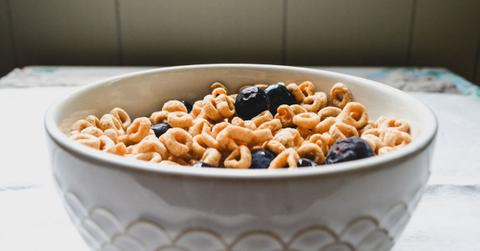Are Popular Breakfast Foods Causing Infertility? 4 Out of 5 Americans Test Positive for Toxic Chemical, Study Claims

Four out of five Americans are being exposed to a little-known chemical called chlormequat that’s found in popular oat-based foods, including Cheerios, according to sources.
A recent study has unveiled concerning findings about the prevalence of a little-known chemical called chlormequat in popular oat-based foods, such as Cheerios and Quaker Oats, commonly consumed by Americans.
The study, conducted by the Environmental Working Group (EWG) and published in the Journal of Exposure Science & Environmental Epidemiology, reveals that a staggering four out of five (or 80%) of Americans tested positive for chlormequat.
Chlormequat, described as a "highly toxic agricultural chemical," is permitted for use on oats and other grains imported into the United States. When applied to oat and grain crops, it alters the plant's growth, facilitating easier harvesting by preventing bending.
Alarmingly, the EWG found chlormequat in 92% of oat-based foods purchased in May 2023, including well-known brands like Quaker Oats and Cheerios.
Further analysis by the EWG revealed an increasing trend of chlormequat detection in urine samples collected from individuals between 2017 and 2023.
The percentage of participants testing positive for chlormequat rose from 69% in 2017 to 90% in 2023, indicating a potential rise in consumer exposure to the chemical over time.
- What Lies Beneath: NASA Scientist Believes Aliens May Have Found 'Perfect' Hiding Spot in Earth's Oceans
- Global Threat: Russia Insider Warns West of 'World War Using Nuclear Weapons' Amid Escalating Support for Ukraine
- Countdown to Disaster? Ex-NATO Official Warns Russia, Iran and China Could Wage WWIII in Just Years
Studies on animals have suggested adverse effects of chlormequat on reproductive systems and fetal growth, raising concerns about its potential impact on humans.
In response to these findings, the EWG has urged for greater scrutiny from federal authorities, including the Food and Drug Administration, regarding the presence of chlormequat in food products.
Never miss a story — sign up for the Front Page Detectives newsletter. Be on the scene the moment news breaks.
However, the EPA, under President Biden's administration, has proposed allowing the use of chlormequat on various crops grown in the US, a decision opposed by the EWG.
As the debate continues, the EWG recommends consumers opt for organic oat products, grown without synthetic chemicals like chlormequat, to minimize potential exposure to harmful pesticides.
Become a Front Page Detective
Sign up to receive breaking
Front Page Detectives
news and exclusive investigations.
